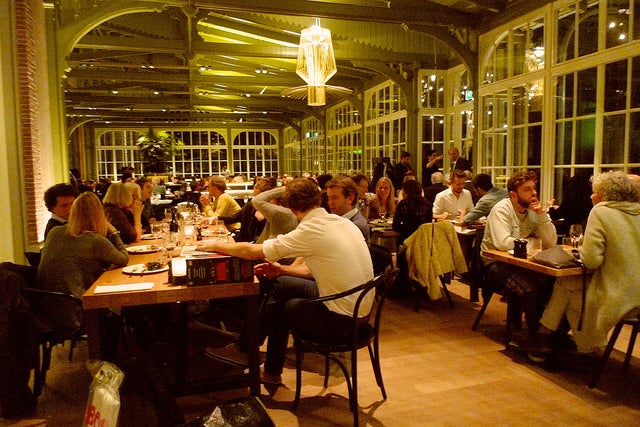
Beyond Burgers & Brunch: Exploring Millennial Dietary Preferences
According to new research, millennials now make up nearly a third of restaurants’ annual revenue, and according to a report by global law firm CMS, “Finding the balance: human touch vs. high tech”, they spend 13% of their total income on eating out.
With help from the report, which surveyed over 5,000 millennials in 18 countries and gathered the views of over 170 leaders in the hotel and restaurant sector, Verdict Foodservice examines five key trends in the foodservice industry and answers the question what do millennials want in a restaurant?
Unique dining experiences
Millennials believe that “a new experience” is an important feature when choosing a place to eat, according to 53% of respondents, with 52% saying they value unique food and 36% that they would pay more for outstanding service in a restaurant.
Many millennials want to show their peers through social media such as Instagram what food they are eating and how different it is. Creating this experience-based atmosphere can make restaurants stand out. Whether it is a unique décor, live entertainment, game night, a paint-and-sip event or an eclectic menu, offering more than just a meal can turn dining into an experience.
One example of creating an experiential dining experience for millennials would be through augmented reality (AR) and wearables. A next-generation ordering application based on AR might let people “sit down” to a virtual meal as a way of making a menu selection.
For example, UK ramen chain Wagamama is using augmented reality to allow diners to scan their placemats with smartphones to virtually visit music festivals, watch art being made, explore menu details, vote for their favourite dishes and “like” Wagamama on Facebook.
Affordable food
According to information to a study by creative agency Barkley “Marketing to Millennials: Deciphering the Enigma Generation,” 35% of millennials would compromise their values to save some money.
Millennials expect good, healthy food at reasonable prices. The survey found that one of the most important factors for millennials when choosing a restaurant was value for money.
The CMS report said the majority of millennials either live with their parents or as part of a couple with no children, meaning they have more money to spend when it comes to food. It found that millennials eat out an average of four times a month; in cases of affordable food, 36% of millennials are willing to pay more in restaurants for outstanding service.
Healthy and organic foods
The Vegan Society found that there are over half a million vegans in Britain. According to the Organic Trade Association, 52% of organic consumers are millennials; they are also said to consume 52% more vegetables than previous generations.
The popularity of veganism has increased demand for “plant-based meats” which refers to using plant-based ingredients to create foods that typically contain meat.
Research has found that millennials want more fruits and vegetables on the menu; this new trend is connecting with popular movements gaining momentum such as meatless options, ancient grains and healthier kid’s menus.
Many restaurants are now offering more plant-based choices and additional fruit and vegetable side options to meet the customer’s needs.
Connecting through technology
Nearly a quarter of restaurants expect to introduce the option of dining with a virtual companion via an interactive screen according to the CMS report.
With 25% of millennials saying they will pay more at a restaurant if its social media ratings are good, as a big majority of millennials use social media they will want to share their experiences at the restaurant they are at.
The technology improvements most wanted by millennial respondents are; the ability to order food and drinks before arriving (47%), paying via an app (44%) and ordering food electronically at the venue (34%). Internet payment company PayPal has created an app that allows people to order their food from their phone before they get to the restaurant.
Research from the report shows 52% of restaurateurs have implemented technology to enable food and drink ordering in advance of arrival and 39% to let customers pay their bill online or through an app
Convenience and food delivery
According to the National Restaurant Association, millennials prefer fast food, deli food and pizza over coffee and casual or fine dining.
As millennials want an emphasis on convenience, meal kits, food delivery services and food trucks are thriving due to their convenience factor. Restaurants should, therefore, focus on a convenience factor to encourage repeat purchases from millennials. This can be achieved by setting up delivery systems, starting meal plans and using technology to make the entire dining experience more convenient.
McDonald’s recently introduced self-service kiosks across a number of its outlets to improve customer journey by focusing on convenience.
Payment technology is another area where millennials have higher expectations with fast and casual chains leading the way with payment cards and apps. Some brands such as Chipotle are involving its customers in the creative experience, offering the chance to customise their meal or try new foods or restaurant experiences.



